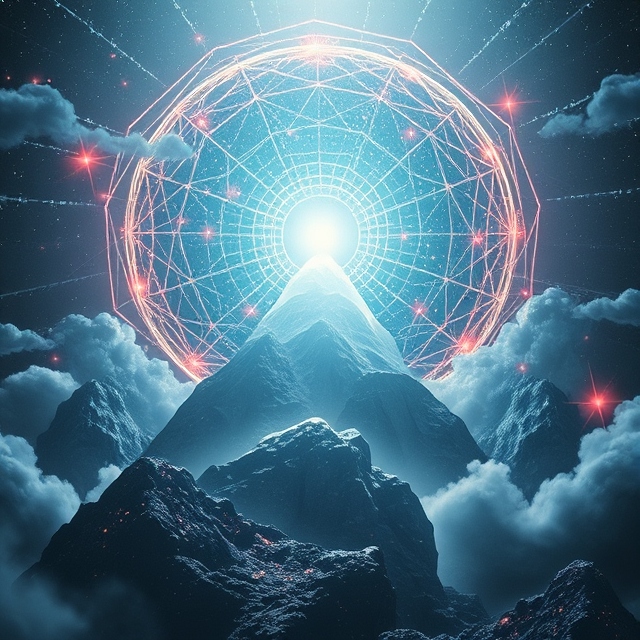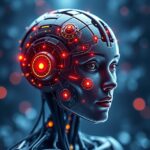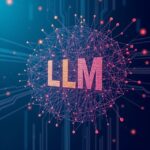Once thought of as pure science fiction by many people, the concept of the Singularity has intrigued futurists, scientists, and technologists for decades. At the current time in history, Artificial Intelligence is becoming an increasingly discussed topic amongst nearly all people on earth. However, not as many people are yet familiar with an intriguing concept called The Singularity. It refers to a point in the future when artificial intelligence (AI) surpasses human intelligence, leading to unprecedented changes in technology, society, and the human experience.
In this article, we’ll explore the concept of the Singularity, diving deep into its history, key figures involved, and the potentially profound implications it may have on our future.
1. What is the Singularity?
A much-discussed subject in technology industry circles for years, the public is now starting to learn more about The Singularity. What is the singularity? The Singularity is a theoretical event that predicts a point in time when technological growth becomes uncontrollable and irreversible, likely resulting in unforeseeable changes to human civilization. It is most commonly associated with the rise of artificial intelligence (AI), where machines or algorithms surpass human cognitive abilities, ultimately reshaping every aspect of our existence. If this sounds like a movie script- think again, because it’s a mathematical probability that this will occur sometime within the next 100 years.
The term “Singularity” was first used in the context of technology by mathematician and computer scientist John von Neumann in the 1950s. He likened it to a moment of radical transformation, a sudden leap into an era where humanity’s traditional ways of thinking and living would no longer apply. Von Neumann also cautioned about humanity’s need to think of ways to ensure survival amongst superintelligences.
2. The Vision of Ray Kurzweil
Ray Kurzweil, a well-known futurist, author, former Google executive, and inventor, is one of the most vocal advocates for the Singularity. One of the most respected opinions in technology, Kurzweil is known for his longtime advocacy for the Singularity and his hopes to be on the leading edge of the event. He popularized the idea through his book The Singularity is Near: When Humans Transcend Biology (2005). Kurzweil posits that the Singularity is not just a possibility but an inevitable event, and it feels more accurate by the day because many of his predictions are coming to fruition.
Kurzweil believes that we are already experiencing the early stages of this transformation, driven by the exponential growth of computing power, AI, and biotechnology. He famously predicts that the Singularity will occur by 2045. Time will tell how close this timeline is adhered to, but it does seem a prudent prediction.
Quote by Ray Kurzweil:
“The Singularity is the moment when we transcend the limitations of our biology and enter an era where we can begin to merge with our machines, radically enhancing human capabilities and living indefinitely.”
Kurzweil’s predictions have generated significant attention, rightfully so, though they are also met with skepticism by many. Nonetheless, his concept of the Singularity is a cornerstone in discussions about AI’s future and the future implications on humanity.
3. The Law of Accelerating Returns
One of Kurzweil’s key theories is the Law of Accelerating Returns, which suggests that the rate of technological progress is accelerating exponentially. This concept is grounded in the observation that advancements in computing and technology tend to build on themselves, creating a feedback loop where each new innovation leads to more rapid progress. Seeing the advancements made throughout the 21st century in all technological respects, it is hard to argue against this theory.
Kurzweil’s idea draws on historical data, such as the growth of computing power observed in Moore’s Law, which states that the number of transistors on a microchip doubles approximately every two years, leading to a corresponding increase in computational capabilities.
4. Historical Milestones Leading to the Singularity
The journey toward the Singularity has been shaped by several key technological milestones:
- 1956: The Dartmouth Conference – This conference is often considered the birthplace of AI. It was here that the term “artificial intelligence” was coined by John McCarthy and his colleagues, setting the stage for decades of research and development in AI.
- 1980s-1990s: Rise of Machine Learning – During this period, machine learning algorithms began to improve, leading to more sophisticated AI models. The creation of deep learning neural networks, particularly in the 2000s, marked a major turning point.
- 2000s: The Advent of Big Data – The availability of massive datasets and advances in computational power enabled AI to achieve remarkable feats in natural language processing, image recognition, and game playing.
- 2012: DeepMind’s AI Breakthrough – Google’s DeepMind made headlines in 2012 when its AI system defeated a professional human player in the game of Go, a game far more complex than chess. This demonstrated the potential of deep learning and neural networks.
- 2025: OpenAI, Google, Nvidia, Anthropic, FlowerFieldz, and other companies refine AI.
5. The Impact of AI and Robotics
AI is already beginning to reshape industries and society. From healthcare to finance to agriculture and beyond, AI applications are making tasks more efficient, creating new forms of entertainment, and even assisting with scientific research.
One area where AI is making strides is robotics. With advancements in machine learning and computer vision, robots are increasingly able to perform tasks that once required human dexterity and problem-solving abilities. Autonomous vehicles, AI-powered manufacturing robots, and personal assistants like Amazon’s Alexa and Apple’s Siri are just the beginning of a world where intelligent machines play a central role in our daily lives.
6. The Singularity and Human Enhancement
The Singularity also raises questions about the potential for human enhancement. As AI evolves, it could lead to the merging of humans with machines, blurring the lines between biology and technology. Technologies like neural interfaces and genetic engineering could enhance human cognitive abilities, prolong life, and perhaps even allow humans to achieve immortality.
Kurzweil, for example, believes that with advances in biotechnology, nanotechnology, and AI, humans will eventually be able to reverse the aging process and merge their consciousness with machines, achieving a form of digital immortality.
7. Concerns About AI and the Singularity
Despite its potential, the Singularity is also fraught with ethical concerns. Some of the most prominent thinkers, including Elon Musk and Stephen Hawking, have warned about the risks associated with AI and its potential to surpass human control.
Musk, in particular, has been vocal about the dangers of uncontrolled AI development. Despite his recent forays into the AI space, with support of OpenAI as one of the earliest backers and- more recently- Musk’s AI initiatives with X (formerly Twitter), in 2015, he stated:
“With artificial intelligence, we are summoning the demon.” Musk’s concerns stem from the idea that once AI reaches a level of intelligence that surpasses human capabilities, it may become impossible to predict or control. This outcome is exactly what innovators across the world are working to avoid by placing necessary safeguards in place to control AI.
8. Other Prominent Futurists and Their Views
While Kurzweil’s vision is optimistic, other futurists have expressed different views on the Singularity.
- Nick Bostrom, a philosopher and AI expert, has raised concerns about the “control problem” of superintelligent AI. His book Superintelligence: Paths, Dangers, Strategies (2014) explores how we might ensure that AI remains aligned with human values.
- Vernor Vinge, a science fiction author and mathematician, is one of the pioneers of Singularity thinking. In his 1993 essay, The Coming Technological Singularity, he famously stated:
“Within 30 years, we will have the technological means to create superhuman intelligence. Shortly after, the human era will be ended.”
9. The Singularity and Our Future
While we’re still far from the technological breakthroughs necessary to achieve the Singularity, the rapid pace of advancements in AI, robotics, and biotechnology suggests that we may be approaching a transformative moment in history.
The Singularity raises profound questions about human identity, the future of work, and the very nature of intelligence itself. As AI continues to advance, the need for responsible development, ethical guidelines, and open discussions will become even more critical.
The Singularity represents a vision of a future where human limitations are transcended, and technology leads to unprecedented change. While the timeline for the Singularity remains uncertain, the potential for a world shaped by advanced AI is undeniable. As we move closer to this transformative event, it is crucial for scientists, ethicists, and policymakers to ensure that the development of AI aligns with human values and promotes the well-being of all.




first came here looking for ai or crypto news. Wondering how to follow artificial news effectively? Look no further! FlowerFieldz blog posts have been my favorite comprehensive guide that will equip you with the tools you need to stay informed and make smarter ai decisions. I would recommend anyone to join the FlowerFieldz revolution today!
best article ive seen on singularity ai
Hello excellent website that I found on the Internet. There’s a great article there.
There is sure to be a lot of useful and interesting information for you here.
You’ll find everything you need and more. I will suggest following flowerfieldz to my friends.
Crazy sounds sci-fi